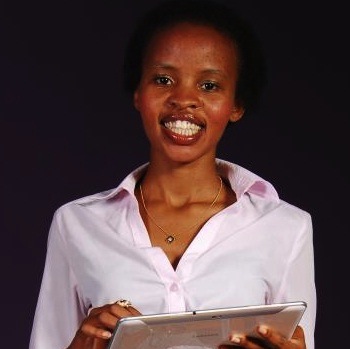 When Kate Kiguru was growing up in a small village in Kenya, she was brought up like a boy. It wasn’t by design.
When Kate Kiguru was growing up in a small village in Kenya, she was brought up like a boy. It wasn’t by design.
She was the middle child in a family of four girls. Her parents had twin girls first. Her mother was occupied with them, so she ended up spending most of her time with her dad. “That’s why I’m so comfortable working in a male-dominated field,” she told me, 30 minutes before she was scheduled to pitch her startup to investors and advisers last Friday in Washington, D.C.
Kiguru, 26, was at the World Bank last week to promote and raise funds for Akida, a mobile application that addresses the challenges of staff attendance verification in large organizations. She was invited by infoDev, a global multi-donor program of the World Bank Group that aims to enable entrepreneurship for sustainable, inclusive growth and employment in developing countries.
Kiguru and 16 other entrepreneurs gathered for infoDev’s Mobile Startup Camp, designed to help early stage mobile entrepreneurs from emerging markets. As Kiguru shared her story, it wasn’t hard to internalize that youth are a driving force behind the rising Africa.
More than 200 million people in Africa are between ages 15 and 24. Like Kiguru, they are rapid learners and fast implementers of their knowledge despite challenges. She grew up in a village without electricity or running water. Her parents passed away when she was young, but she continued her schooling with help from her sisters. She saw computers for the first time when she was 13 years old.
Now, 13 years later, she is not only traveling halfway around the world to raise money for her venture, but also helping girls in her home country learn how to code. Her hopes of solving problems and inspiring others persuaded her to persevere in a culture where girls are expected to stay within the boundaries and follow patriarchal norms.
She recalls her college days when she was the only female student in her computer classes. Working in the technology sector was no different.
“I’m sort of stubborn,” she quipped as she talked about her determination to not blindly follow the tradition. To ensure that other young women in Kenya reach their potential, Kiguru works with Akirachix, a community of tech women, to inspire Kenyan girls to learn about technology.
At the Mobile Startup Camp, there were roughly equal numbers of male and female entrepreneurs, all of them eager to learn to refine products, business models, and marketing pitches. As I listened to their pitches, it was clear that all of them are committed to a cause, whether it’s helping farmers in remote parts of the world sell crops easily or making sure jewelery from African slums reaches the global market.
The World Bank is helping these entrepreneurs to take their ideas, as Valerie D’Costa, program manager of infoDev put it, from “mind to market.”




